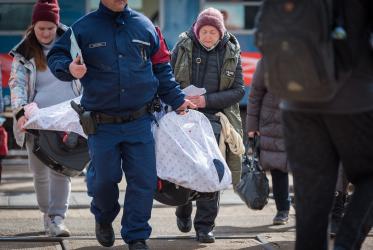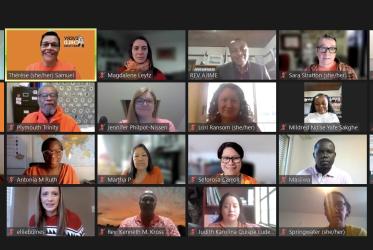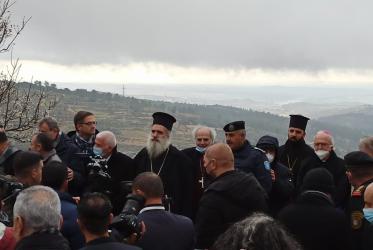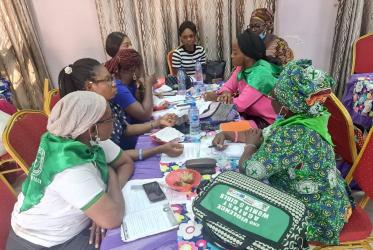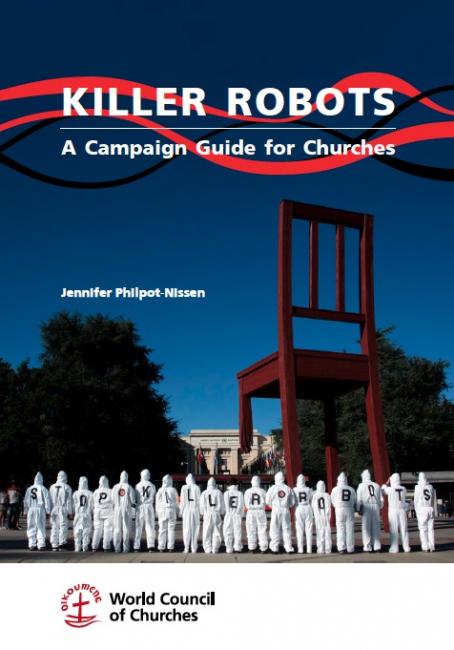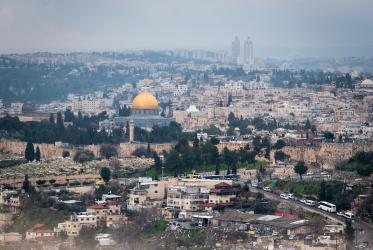Displaying 121 - 140 of 492
WCC leaders recall life-changing experiences from early days
10 February 2022
Planting trees and working for peace in Palestine
26 January 2022
World mourns loss of Archbishop Desmond Tutu
30 December 2021
Nigerian churches train women and girls on human rights
20 December 2021
WCC condemns bombings in Uganda, calls for justice
18 November 2021
